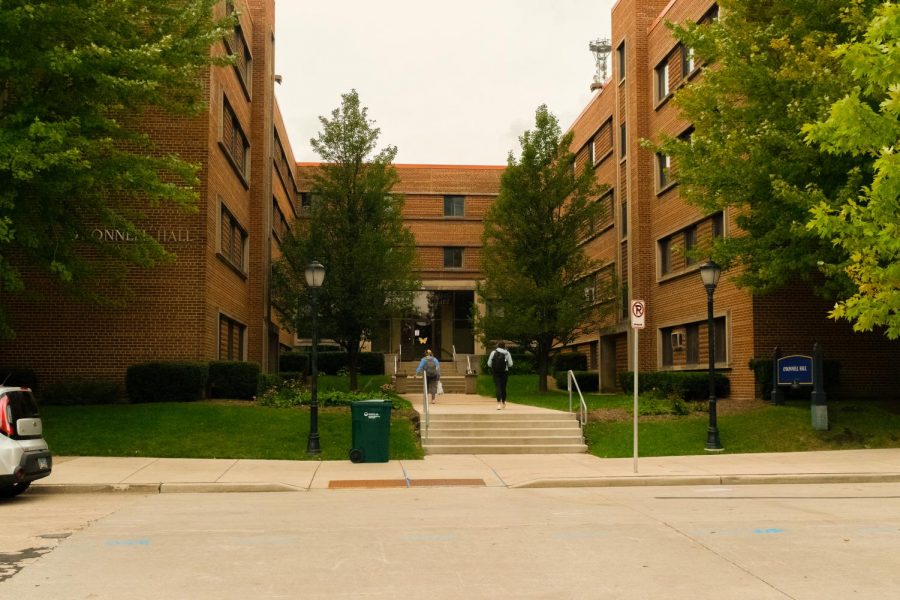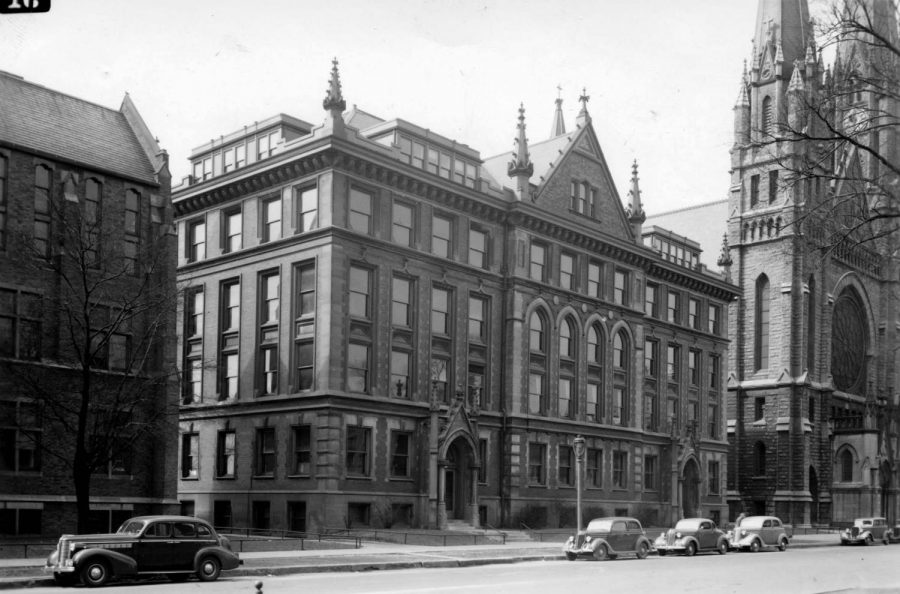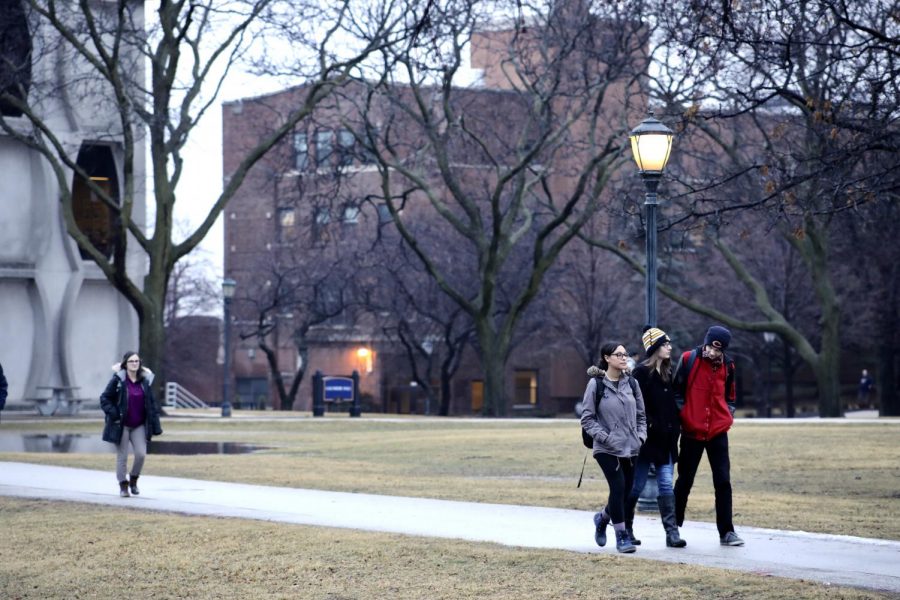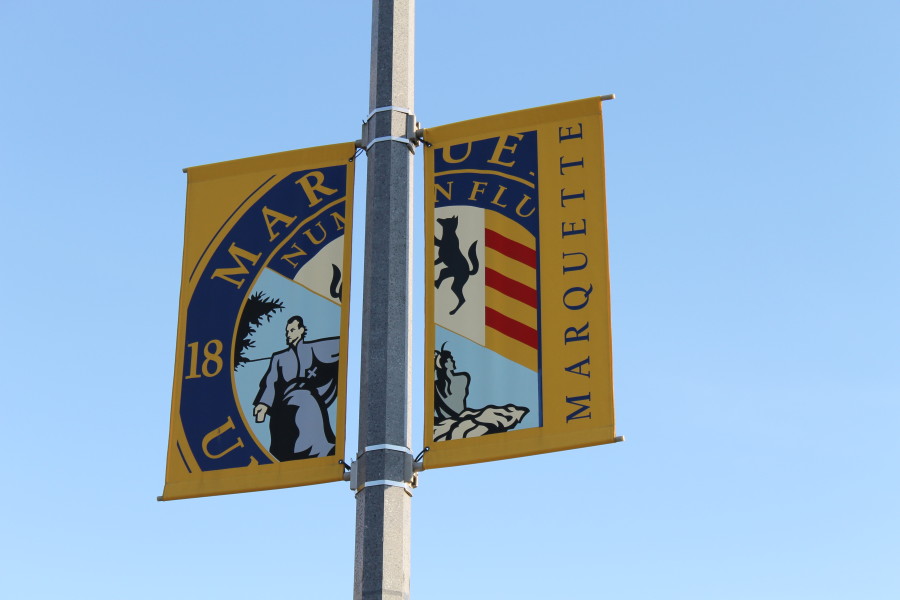Marquette Student Government sponsored a student forum with University President the Rev. Scott Pilarz and Provost John Pauly Tuesday to listen to student reactions about the five themes the administration decided would guide the university’s strategic planning process. Approximately 100 students attended the event and offered their opinions on strategic planning and what they believe to be the themes’ strengths and shortcomings.
Environmental initiatives, interdisciplinary communication, campus safety concerns, diversity and inclusivity, campus expansion, service opportunities and improving research were among the topics discussed at the forum.
Before beginning the discussion, Pilarz took several minutes to state exactly what the purpose of a university strategic plan is. He emphasized that the plan is not a “wish list” for the university and not a “magic wand or silver bullet that will make everything all right at Marquette.” Rather, Pilarz said, the five themes, while directing the university to a “vision statement”, will specifically drive the school toward “university wide goals” that will shape the direction of the university.
“A plan will help us understand what our priorities need to be, in a rather general way, for the next five to seven years,” Pilarz said.
The five themes guiding the strategic planning process are the pursuit of academic excellence for human well-being; research in action; service, social responsibility and civic engagement; formation of the heart and soul; and stewardship of valuable resources.
One of the most frequently voiced concerns about the themes during the forum was their ability to recognize sustainability and incorporate environmental awareness. Several students noted that implementation of greener environmental initiatives align with the objectives of every theme. Some expressed their desire for an explicit statement or acknowledgment addressing this “serious problem” in the themes.
“In terms of where the sustainability piece may fit in the strategic planning themes, I personally see it fitting in all of them,” said John Haugland, a senior in the College of Engineering.
Elyse O’Callaghan, a senior in the College of Engineering, agreed.
“Environmental issues are inherent in things we need to address, and that language needs to be in (the themes) because it’s overarching,” Callaghan said.
In response to students’ concern for the environment, Pilarz said that updating school facilities to more environmentally friendly standards is a feasible approach the university will consider.
“(In terms of) renovating old buildings, and inevitably, building new buildings – that’s a consideration that we can very practically take into consideration,” Pilarz said.
When evaluating whether the themes accurately reflected their interests, Pauly told students to ask themselves the question, “Can you imagine yourself in a university that would be organized around those kinds of themes?”
Besides environmental sustainability, many students said effective interdisciplinary communication and “across-the-board” collaboration between different departments and colleges was an area in need of significant improvement. Students present at the forum emphasized that such advancement would prevent overlap between different academic departments and benefit those students who want to double major or minor outside of their college.
Pilarz said this desire for collaboration across college boundaries was not only expressed among students but among faculty members as well.
Pilarz and Pauly both recognized that the lack of opportunities for undergraduate research is also a problem that needs fixing. To emphasize this point, Pilarz asked the students at the forum to raise their hands if they had ever collaborated on a research project with faculty. Of the roughly 100 students present, fewer than 10 raised their hands.
Tackling the problem of implementing undergraduate research programs particularly resonated with Anne O’Meara, a senior in the College of Arts & Sciences, who feels that such experiences are hard to come by in her college.
“Engineering has a great co-op program, nursing students have clinicals, education majors do student-teaching, business students always have so many internship opportunities,” O’Meara said. “And so, for an Arts & Sciences student, hearing something like that is really, really great because I would love to have more opportunities for (undergraduate) research.”
In regard to the progress the administration has made in formulating the strategic plan, Pauly said it is still in the “listening mode.” He said the forums will provide the strategic coordinating planning committee with the opportunity to incorporate students’ input and concerns, such as the frequently raised issue of environmental efficiency, into the university’s plan.
The strategic planning committee is a group of Marquette administrators, professors, students and alumni appointed to facilitate campus discussion and gain an accurate representation of the university’s goals and concerns. Several members of the coordinating committee were present at the forum to gauge student reaction.











